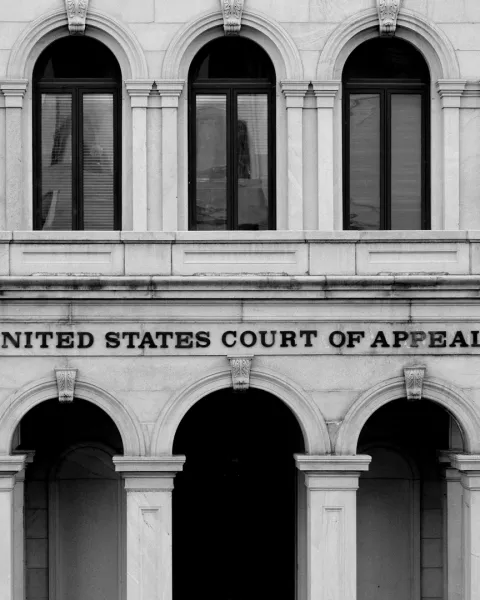The employer must prove the applicability of an exemption from overtime under the Fair Labor Standards Act (FLSA) with “clear and convincing” evidence, a three-judge panel of the U.S. Court of Appeals for the Fourth Circuit has held, adhering to prior circuit precedent but acknowledging the “clear and convincing” standard may no longer be valid. Nevertheless, that standard must be followed absent a contrary ruling by the U.S. Supreme Court or the full court of appeals, the panel explained. Carrera v. E.M.D. Sales, Inc., 2023 U.S. App. LEXIS 19308 (4th Cir. July 27, 2023).
The Fourth Circuit has jurisdiction over the federal courts in Maryland, North Carolina, South Carolina, Virginia, and West Virginia.
Background
Three sales representatives filed suit against their employer, a food distribution company, alleging that they were entitled to overtime pay under the FLSA. The employer countered that the plaintiffs were overtime-exempt under the Act’s “outside sales” exemption. Department of Labor regulations provide that the outside sales exemption applies to employees whose “primary duty is [] making sales” and who “customarily and regularly” work away from the employer’s place of business in performing that primary duty. 29 C.F.R. § 541.500(a).
During the bench trial, the plaintiffs contended that circuit precedent, e.g., Shockley v. City of Newport News, 997 F.2d 18, 21 (4th Cir. 1993), required the defendant to establish the outside sales exemption by “clear and convincing” evidence. The defendant, citing the Supreme Court’s decision in Encino Motorcars, LLC v. Navarro, 138 S. Ct. 1134 (2018), argued that the Court’s rejection of interpreting FLSA exemptions narrowly, and instead adopting a “fair reading” standard for such exemptions, signaled that a “preponderance of the evidence” standard was appropriate.
The district court agreed with the plaintiffs, noting that Encino Motorcars made no mention of evidentiary burdens of proof and, therefore, that Fourth Circuit precedent dictated application of the “clear and convincing” standard. Ultimately, the district court found in favor of the plaintiffs as to liability and as to an award of liquidated damages, but it held the plaintiffs did not establish the willfulness necessary to allow them to recovery three, rather than the standard two, years of damages.
The Appeal
Both parties appealed the respective adverse rulings against them. As to the finding of liability against it, the employer argued only that the district court erred in requiring it to demonstrate by “clear and convincing” evidence that the plaintiffs were covered by the outside sales exemption. The court of appeals acknowledged that the Supreme Court’s decision in Encino Motorcars gave some credence to the defendant’s argument.
Ultimately, however, the court of appeals was bound by prior circuit precedent. Because an appellate court “do[es] not lightly presume that the law of the circuit has been overturned,” and because — as the district court had concluded — there is a distinction between the burden of evidentiary proof required to establish the factual questions relevant to an FLSA exemption and statutory interpretation of the legal scope of that exemption, it is “entirely possible” to read Fourth Circuit precedent “harmoniously” with Encino Motorcars, the court held.
Nevertheless, the panel ended by suggesting that further review might be appropriate. It noted, “Perhaps this court will want to revisit the appropriate evidentiary standard for FLSA exemptions in light of the Supreme Court’s reasoning in Encino Motorcars and what can be extrapolated from it. But that is a choice that belongs to the en banc court [of appeals] rather than this panel.”
Circuit Split
A split exists among the circuits as to the proper evidentiary standard. Some courts of appeals have concluded that the lesser, “preponderance of the evidence,” evidentiary standard applies to an employer seeking to demonstrate the existence of an FLSA exemption. See, e.g. Leal v. Magic Touch Up, Inc., 855 Fed. Appx. 924 (5th Cir. 2021) (applying preponderance-of-the-evidence standard); Yi v. Sterling Collision Centers, Inc., 480 F.3d 505 (7th Cir. 2007) (same); Lederman v. Frontier Fire Prot., Inc., 685 F.3d 1151 (10th Cir. 2012) (clarifying that, notwithstanding use of the phrase “plainly and unmistakably” in describing the burden of proof, employers need only establish an FLSA exemption with a preponderance of the evidence).
Takeaway
Updated 08.28.23: On August 22, 2023, the full Fourth Circuit denied the employer’s petition for en banc rehearing in a brief order, leaving in place the decision issued by the three-member appellate panel.
Ultimately, the Supreme Court may have to resolve the circuit court split regarding the proper evidentiary burden for establishing an FLSA exemption. Until then, or until the circuit courts come to a unanimous agreement on their own, employers’ establishment of an FLSA exemption will be more difficult in some locations than in others.
If you have any questions about this ruling, FLSA exemptions, or any other wage and hour issue, please contact the Jackson Lewis attorney(s) with whom you regularly work.
© Jackson Lewis P.C. This material is provided for informational purposes only. It is not intended to constitute legal advice nor does it create a client-lawyer relationship between Jackson Lewis and any recipient. Recipients should consult with counsel before taking any actions based on the information contained within this material. This material may be considered attorney advertising in some jurisdictions. Prior results do not guarantee a similar outcome.
Focused on employment and labor law since 1958, Jackson Lewis P.C.’s 1,100+ attorneys located in major cities nationwide consistently identify and respond to new ways workplace law intersects business. We help employers develop proactive strategies, strong policies and business-oriented solutions to cultivate high-functioning workforces that are engaged and stable, and share our clients’ goals to emphasize belonging and respect for the contributions of every employee. For more information, visit https://www.jacksonlewis.com.


